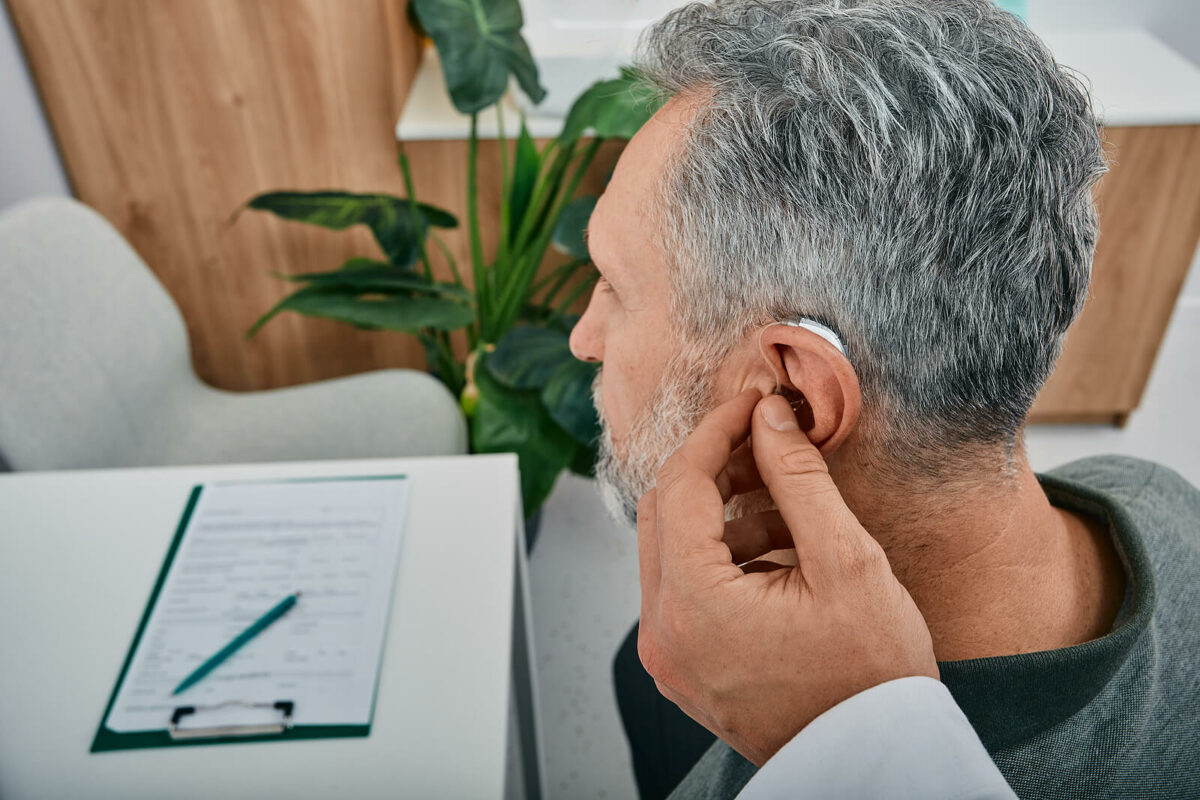
Questions to Ask During a Hearing Consultation & Fitting
Are you trying hearing aids for the first time? It can feel like a big adjustment getting used to them, but we assure you that once you get used to them, you can enjoy improved conversations, stronger relationships, improved cognitive function and more confidence around mobility.
While a new pair of properly prescribed eyeglasses automatically adjusts your vision to allow near perfect vision, the change you’ll experience with hearing aids is not as immediate. All too often people wait years before they seek treatment around a hearing loss—seven to ten on average. Over this time certain tones, pitches and sounds are not perceived by the brain. The first time you put on hearing aids it can be a rush of old sounds. Your brain isn’t used to hearing them and it may take some time to get used to them. The good news is that we are here to help you on your journey to making hearing aids part of your daily life in which you hear and converse with confidence. Here are some questions to prepare for your upcoming appointment.
How often should I wear my hearing aids?
Ideally hearing aids should be worn from the moment you wake up till the time you rest. This allows you to be alert of any sound that may come your way during the day. In addition, amplified hearing allows you to be on the same level as people with normal hearing, supporting, communication, spatial awareness, and mobility as you navigate the world.
Should I wear them in the shower?
The only time you should take them out is when you are bathing, showering, swimming, or any time you are exposed to water. While some hearing aids today boast water resistance, few are 100 percent waterproof. Moisture and water is one of the best ways to short circuit your state of the art digital hearing aids or corrode their battery terminals. If you are going to be in a place with high humidity, it’s best to invest in a hearing aid dehumidifier. Many of these use a desiccant to draw moisture out of your hearing aids so they are dry and ready to function day after day.
How should I care for my hearing aids?
During your consultation, you will learn how to maintain your hearing aids properly. This includes a regular inspection and light cleaning at the end of every day. Inspecting your hearing aids allows you to monitor any new cracks or missing tubes which could have gone missing during the day. In addition, you should wipe away dirt, dust and earwax build up that may accumulate during the day as you navigate all sorts of places with a soft washcloth. You may be surprised just how dirty your hearing aids get every day! Clean the earwax gently with a pick. We have cleaning kits to send home with you, to get you started with good hearing aid hygiene.
What do I need to know about hearing aid batteries?
Many hearing aid batteries are replaceable and it’s up to you to carry extra batteries with you at all times. They can power your batteries for three to five days depending on the amount of time you are listening and the amount of power they require. More and more common hearing aids are coming with rechargeable batteries. This new innovation is quickly becoming the most common type on the market for their convenience. All you have to do is plug them in at the end of the day and they are fully charged and ready to amplify sounds again all of tomorrow.
What does follow-up care look like?
Before we help you to find the best hearing aids for you and your particular type of hearing loss in combination with your lifestyle, we will give you a comprehensive hearing exam. It may take some time to find the best fit and amplification program for you. Many people make the mistake of thinking that once they are wearing hearing aids their hearing won’t get worse. In truth hearing aids can amplify sound but they can’t cure hearing loss. Hearing loss is a progressive condition and can get worse with time. In addition to follow up appointments to perfect your hearing aids, make sure to schedule annual hearing exams to monitor your hearing now!
